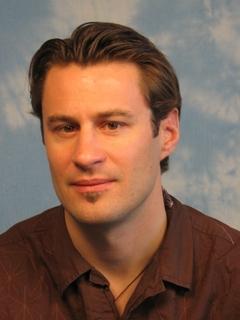event
Stem Cell Engineering Center Seminar Series
Primary tabs
Matthias Lutolf, PhD - École Polytechnique Fédérale de Lausanne (EFPL)
Probing and manipulating stem cell fate in microarrayed artificial niches
Abstract
Proper tissue maintenance and regeneration relies on intricate spatial and temporal control of biochemical and biophysical niche cues, instructing stem cells to acquire particular fates. Despite rapid progress in the identification of relevant niche proteins and signaling pathways using in vitro models, to date, many stem cell types cannot be efficiently cultured in vitro. To address this challenge, we have been developing biomaterial-based approaches to display and delivery stem cell regulatory signals in a precise and near-physiological fashion, serving as powerful artificial microenvironments to study and manipulate stem cell fat. In this talk I will discuss some of our recent efforts to develop 'microarrayed artificial niches' allowing key biochemical and biophysical characteristics of stem cell niches to be mimicked and the physiological complexity deconstructed into a smaller, experimentally amendable number of distinct signaling interactions. The systematic deconstruction of stem cell niches may serve as a broadly applicable paradigm for defining and reconstructing artificial niches to accelerate the transition of stem cell biology to the clinic.
Biography:
Matthias Lutolf is Head of the Laboratory of Stem Cell Bioengineering at the Ecole Polytechnique Federale de Lausanne (EFPL). He was trained as a Materials Engineer at ETH Zurich where he also carried out his Ph.D. studies on the development of a novel class of biomaterials for tissue engineering and cell biology (awarded with ETH medal, 2004). In 2005, with fellowships from the Swiss National Science Foundation and Leukemia and Lymphoma Society, Lutolf joined the Baxter Laboratory in Stem Cell Biology at Stanford University to study microenvironmental regulation of adult stem cells. In 2007, Lutolf received a European Young Investigator (EURYI) award to start up his independent research group at EPFL. By interfacing advanced biomaterials engineering, microtechnology and stem cell biology, a major goal in his lab is to uncover mechanisms of stem cell fate regulation by developing and applying 'artificial niches' which allow probing stem cell biology at the single cell level under well-defined biochemical and biophysical conditions.
The Stem Cell Engineering seminar series brings leaders in the field to Georgia Tech to share their most recent work and advances. The seminars are open to all faculty, trainees and staff interested in stem cell engineering research. Please visit the Stem Cell Engineering Center website or the Petit Institute for Bioengineering and Bioscience website for a list of upcoming and previous speakers. Suggestions for potential speakers are always welcome - email Megan Richards.
Groups
Status
- Workflow status: Published
- Created by: Megan Richards
- Created: 01/02/2013
- Modified By: Fletcher Moore
- Modified: 10/07/2016
Categories

